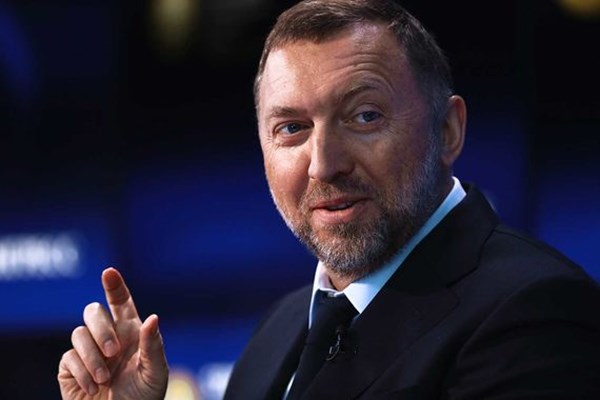Fortune of Russian oligarch Deripska shrinks by $2.5 billion after US puts him on sanctions list
On Friday, April 6, the U.S. Department of the Treasury imposed new sanctions against Russian businessmen, officials and managers of state companies. They involve the freezing of assets of those included in the sanctions list and also prohibiting American citizens and companies to engage in any economic activity with the blacklisted individuals. According to the U.S. Department of the Treasury, the sanctions were introduced in response to Moscow’s attempts at undermining western democracies.
There are several Russian billionaires from the Forbs list, among those subjected to sanctions: Oleg Deripaska – the owner of the Basic Element business group, Viktor Vekselberg, the owner of Renova group, Kiril Shamalov, a member of the board of directors of PJSC Sibur, Igor Rotenberg, chairman of the board of directors of OJSC NPV Engineering, Senator Suleyman Kerimov, and also a partner of Alisher Usmanov Andrei Skoch, whose family holds a share in the Vnukovo airport. The list includes also several Russian companies, including the largest public assets of Deripaska, UC Rusal and EN+ Group.
As of 17:25 Moscow time, EN+ Group shares dropped by more than 20% at the Moscow stock exchange and the shares of UC Rusal dropped by 12.44%. UC Rusal lost over 66 billion rubles of capitalization (dropping from $8 billion to $1.15 billion to $465 million) while the total price of En+ shares dropped from $5.5 billion to $1.4 billion.
According to the Moscow stock exchange, as of 17:25 Moscow time, its index dropped by 0.18% and the Russian trading system index by 0.47%.
The new US sanctions list includes not only Russian businessmen but also the heads of large state-owned companies. The Chairman of Gazprom energy conglomerate, Alexey Miller, Chairman of VTB bank, Andrey Kostin, and Chairman of the Board of directors of Gazprombank, Andrey Akimov were included in the list.
All legal entities with direct or indirect ownership of 50 or more percent are automatically subject to sanctions. The 50 percent rule extends sanctions against Russian-controlled and foreign companies automatically. If the head is subjected to sanctions, sanctions do not apply to a legal entity but any contacts with this top-manager fall under the ban.
With regard to Gazprom, the sanctions already caused problems for the company’s larger projects, for example Nord Stream-2. However, despite this, the project is continuing, and foreign countries, on whose territory the pipeline is to be situated, give their permission for its construction.
